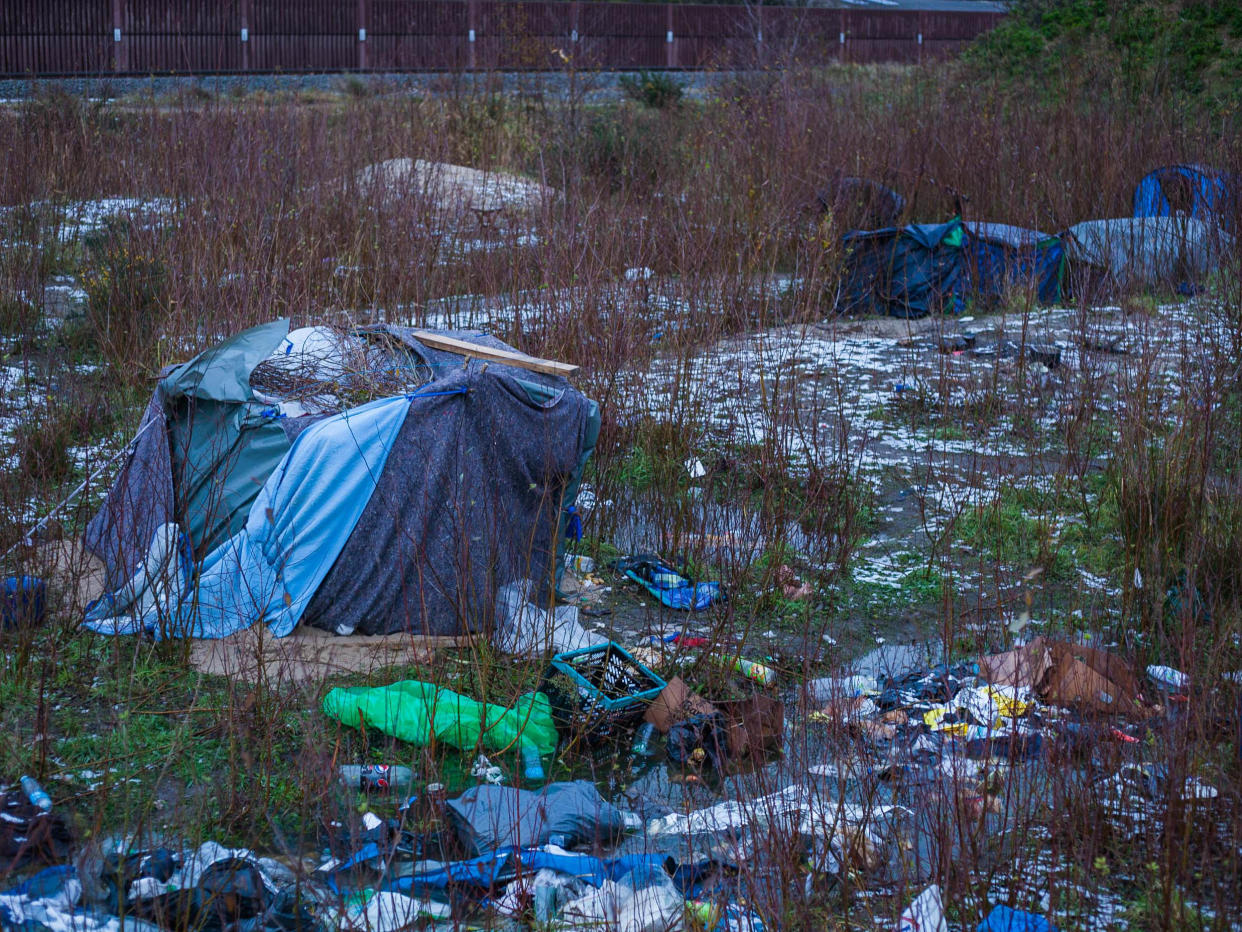Macron-May talks: UK and France must put a stop to 'systematic violation' of Calais refugees, warn charities

The UK and France must urgently put an end to the “systematic violation” of refugees in Calais, a group of charities has warned.
In a letter shared exclusively with The Independent, eight aid organisations urged leaders Theresa May and Emmanuel Macron to uphold their commitment to human rights law, as conditions for the thousands living on the border become increasingly perilous.
The group, which includes l’Auberge des Migrants, Help Refugees, Safe Passage and Refugee Rights Data Project, wrote to the leaders on the same day Ms May welcomed the French President to the UK-France Summit at the Royal Military Academy in Sandhurst.
“We are writing to ask that any new agreement relating to the French-British border bear in mind the human rights of displaced people currently residing in Calais,” the letter states.
“We are deeply concerned that the human rights of refugees and displaced people in northern France are being systematically violated on French territory. We moreover lament the heightened risk of sexual violence, exploitation and trafficking to which children and youth in Calais are exposed, as well as the many avoidable deaths occurring at the border.”
Ahead of the visit, the Prime Minister announced the UK will take more child refugees from Calais and spend £44.5m on additional security at the French port.
Ms May and Mr Macron subsequently signed a deal on migrants called the Sandhurst Treaty, designed to ease the suffering of some of the thousands of people camped near the French port who currently wait six months to have their cases settled.
However, No 10 was keen to play down suggestions that Ms May had agreed to accept more refugees, insisting it would simply speed up the process of settling claims.
The new treaty also completed the Le Touquet agreement, which allows Britain and France to station border officials on each other’s soil.
The UK Government has been strongly criticised for capping the so-called “Dubs scheme”, accepting only 480 unaccompanied minors instead of 3,000 as originally expected.
The letter calls on the French and British Governments to go further to tackle a number of hidden issues at the border.
Child protection frameworks must be a “high priority”, the charities urged, warning that heightened risks of sexual violence were a real threat to unaccompanied children in the region.
“Unaccompanied children on French soil must be given full access to shelter, mental and physical health services, and other basic services such as access to food, water and sanitation," the letter reads.
The organisations also warned police violence was a significant problem in the region and called on the leaders to prohibit “disproportionate and indiscriminate use of force”.
The charities also asked for “safe legal routes” to be implemented that allow refugees to reunite with family under the Dublin Regulation, and open “adequate reception centres” to house people during periods of cold weather.
In December, a 15-year-old boy died at the border after being hit by a lorry. He had been hoping to be reunited with his brother who was living in the UK.
A year on from the demolition of the "Jungle" camp, when 8,000 refugees were dispersed, dozens of displaced families are still sleeping rough in woodland waiting for their chance to be smuggled into Britain by criminals.
The Independent reported in October over 2,000 refugees were still homeless in Calais and Dunkirk.
Earlier this week, Mr Macron said he would not allow the shantytown to reappear in the city, but he did criticise the Dublin rules, calling instead for an “integrated” EU system that would not force refugees to seek asylum in the first country they arrived in.

 Yahoo News
Yahoo News 
